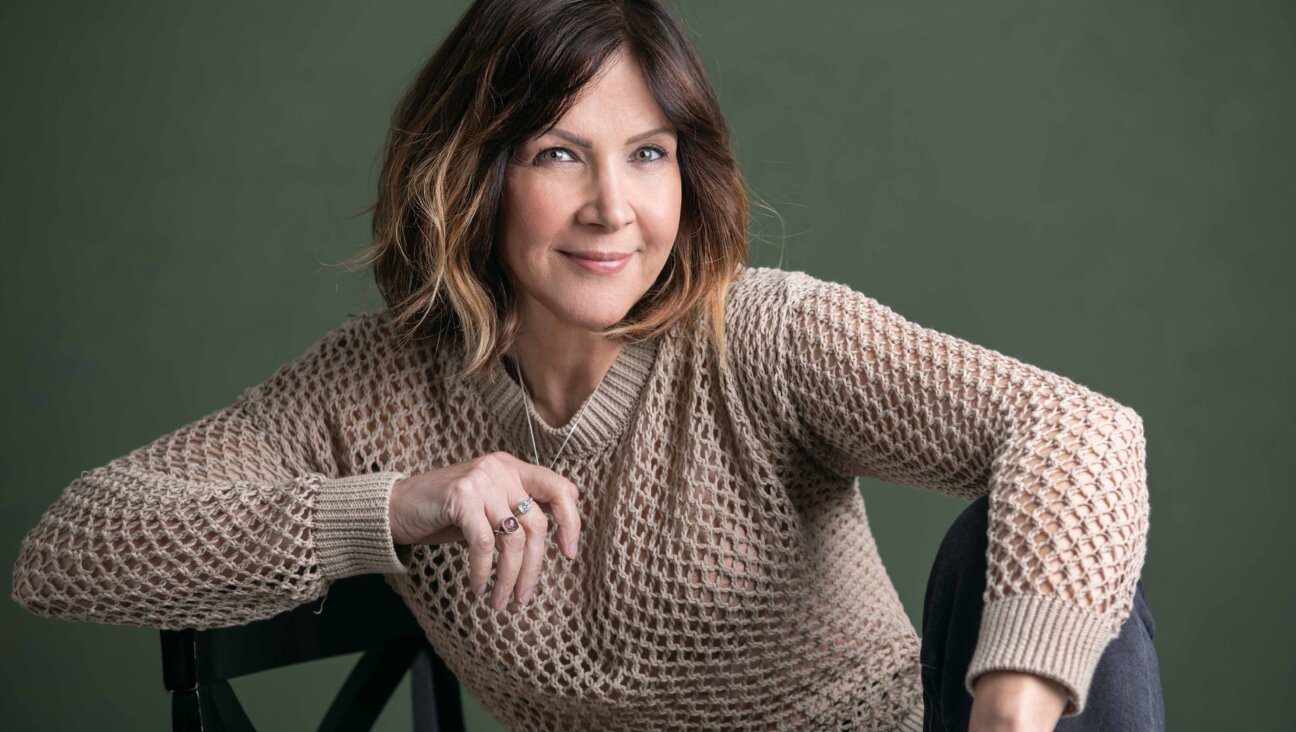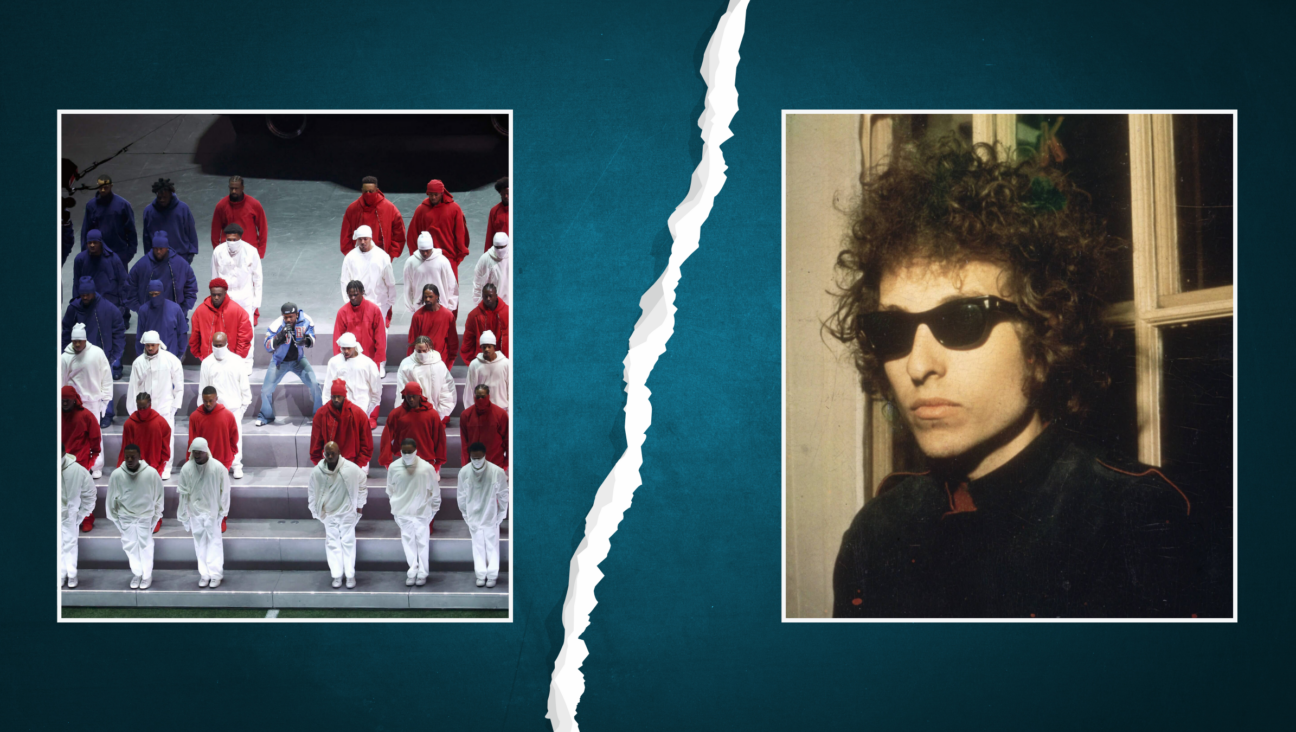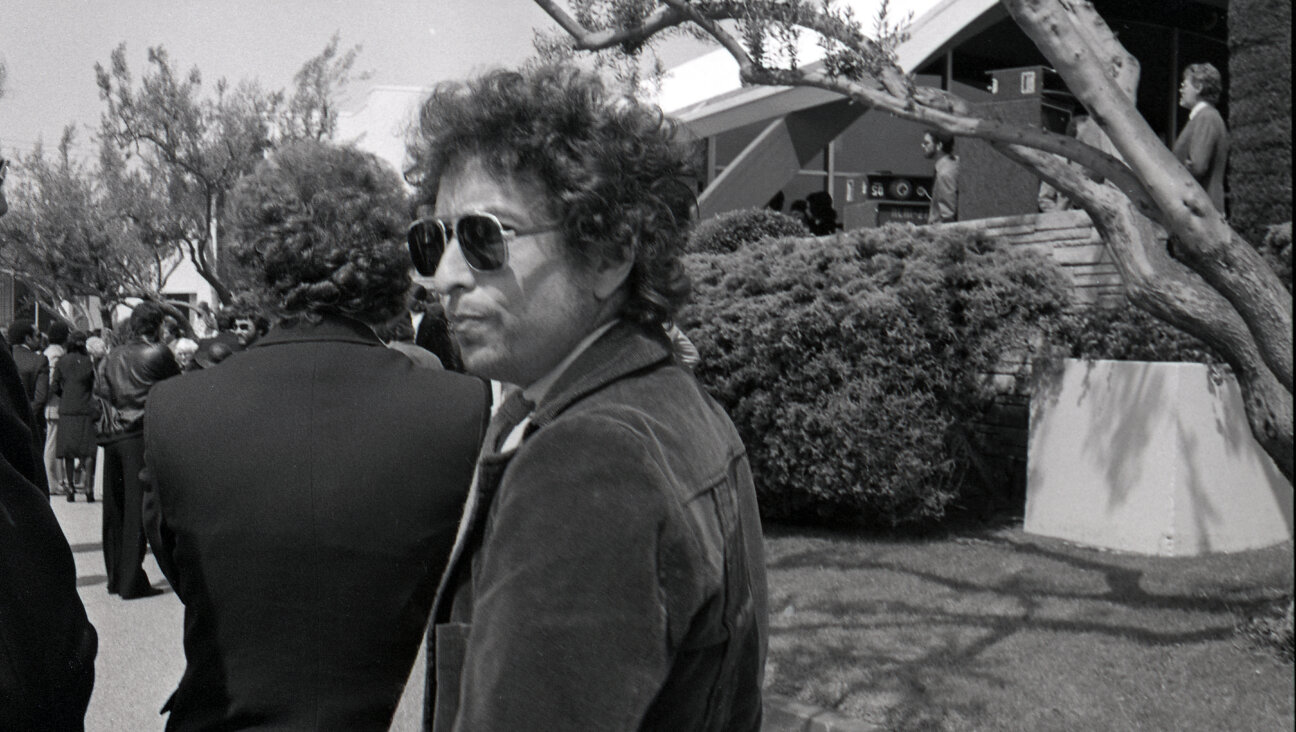The most Jewish songs from Drake’s new album
‘Honestly, Nevermind,’ is a ‘Portnoy’s Complaint’ of a record — with a Jewish wedding video to boot

Drake’s latest album is full of vulnerability, paranoia, tenderness and, ultimately, old habits. Photo by Vivien Killilea/Getty Images
Drake’s latest release came without much fanfare, dropping just hours after an announcement late Thursday night. But while the publicity was muted, the same can’t be said for an accompanying music video that sees Champagne Papi married off to 23 women — by a Haredi rabbi.
As if this wasn’t enough, Drake provided a lengthy, rhymed statement with the album, titled, as if he though better of the whole endeavor, “Honestly, Nevermind.” The note reveals a man who believes himself to have few allies, is blighted by an “urge for revenge” and is surrounded by people who say they love him but, in reality, are jealous of him. One wonders just how much of this is deferred therapy. Given the nature of that kvetch, and the undeniably Jewish visuals of the music video, it’s worth examining what in the overstuffed album, fulfills the artist’s Yiddishkeit. Without further ado, here are the most (kinda) Jewish lyrics from Drake’s latest.
Track 1 “Intro”: N/A. This is an instrumental, and it sounds vaguely Celtic by way of Yanni.
Track 2 “Falling Back”: Making use of a vocal filter, Drake purrs a plea for validation: “I’m still holdin’ my breath for the day that you will/See that the effort I make is too real.” In another life, Aubrey Graham may have said this to his mother after Havdalah, when his LSAT scores were less than perfect. (This is also the track with the very long music video where Drake gets hitched in a Jewish wedding to more over 20 women.)
Track 3 “Texts Go Green”: As Drake continues to work through his issues with an unspecified interlocutor, he says “don’t wanna make something from nothing, that’s where I be/Well, keep getting nothing from something, how’s that fair to me?” Of course Drake is invoking the Hebrew paraphrase of ninth-century Rabbi Saadia Gaon’s thesis re: God’s creation of the universe ex nihilo, “yesh me-Ayin” (something from nothing).
Track 4 “Currents”: Drake is describing a drunk hookup, punctuated by what sounds like a squeaking bed frame. Could this be a post-Purim party fling? Anyway, the song’s Freewheelin’ first line is “Don’t think twice” – and I guess that’s all right. (No, it sounds nothing like Bob Dylan.)
Track 5 “A Keeper”: “I found a new muse/That’s bad news for you.” This track is likely directed at actress Julia Fox who had a meme-worthy moment for saying she was Josh Safdie’s muse in the very Jewish “Uncut Gems” (she pronounced it more like “Uncah Jams”). There were rumors Drake and Fox were an item – before Fox started seeing Drake’s sometime-nemesis Kanye West – but Fox has denied them.
Track 6 “Calling My Name”: This track is very thirsty, and mostly not fit to print. But as Drake sings “You’re my water, my refresher,” before a more explicit anatomical reference, one may recall a similarly erotic, but far more SFW, passage in the Song of Songs: “Your navel is like a rounded goblet — let mixed wine not be lacking.”
Track 7 “Sticky”: We finally get at the root of a lot of Drake’s problems here as he sings, “My mama wish I woulda went corporate/She wish I woulda went exec’/I still turn to a CEO so the lifestyle she respect.” Of course, blame your mother.
Track 8 “Massive”: Before Drake allows himself to imagine his “lit” funeral, he declares himself, per the standards of the Barbra Streisand standard, one of the luckiest people in the world, stating: “I was alone in this world/and I needed people.”
Track 9 “Flight’s Booked”: Drake embraces the Jewish value of welcoming the stranger. Acknowledging the distance between himself and someone named Lila, he nonetheless claims to “Owe [her] some hospitality” (hakhnasat orchim) and that “it comes so naturally.”
Track 10 “Overdrive”: A “divine bond” is cited in this vulnerable bop. Could it be the covenant?
Track 11 “Downhill”: Fatalistic — or maybe just realistic — Drake says “we don’t connect anymore.” More cryptically, he offers “overnight, we’re done.” Is it possible the same person addressed in “Texts Go Green” is Shabbat-observant and has their phone off come Friday night? If so, a larger conversation may be in order.
Track 12 “Tie That Binds”: It’s hard to keep track of who Drake is seeing and how he feels about them, but here he seems ready to make a commitment, offering to take this person to meet his family and be together till “[they’re] ghost.” There’s also a reference to a name change, and while one may suspect this is a change in surname, perhaps Drake hopes this person – who may not already be Jewish – will add a “bat Sarah” upon their conversion. Naturally, this should be her choice, though the hope she’ll “never dim the light” may indicate a shul wedding under the eternal flame — hopefully not a polygamous one like in the video for “Falling Back.”
Track 13 “Liability”: In a bitter track, Drake reveals himself to be one of the many Jews who’ve spent time tabulating word scores with the following complaint: “You put your words together like you getting points for that/like you playing Scrabble on me.”
Track 14 “Jimmy Cooks”: Bookended by “Rest in peace Lil Keed,” an Atlanta rapper who died in May and “Rest in peace to Drama King,” the nickname of DJ Kay Slay, who passed in April, the rapped conclusion might function as a Mourner’s Kaddish brimming with threats, name-drops and a sly reference in its title to Drake’s onetime “Degrassi” character, Jimmy Brooks. As a conclusion to this wild, “Portnoy’s Complaint” of an album, it shows that, when ending the session, our patient reverts back to his old, guarded habits.
Together with the title of the album, itself dismissive of his real concerns, it makes one wonder if Drake’s ready to fully steer into confronting his emotions and relationships. Naturally, the best way to do this is with a klezmer EP.
A message from our Publisher & CEO Rachel Fishman Feddersen

I hope you appreciated this article. Before you go, I’d like to ask you to please support the Forward’s award-winning, nonprofit journalism so that we can be prepared for whatever news 2025 brings.
At a time when other newsrooms are closing or cutting back, the Forward has removed its paywall and invested additional resources to report on the ground from Israel and around the U.S. on the impact of the war, rising antisemitism and polarized discourse.
Readers like you make it all possible. Support our work by becoming a Forward Member and connect with our journalism and your community.
— Rachel Fishman Feddersen, Publisher and CEO






























